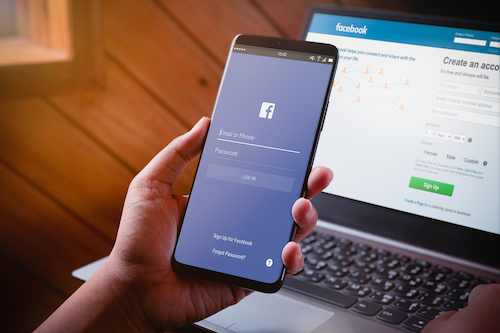 It’s a scenario many people dread: scrolling through your Facebook newsfeed, only to see your ex has updated their relationship status to “in a relationship”.
It’s a scenario many people dread: scrolling through your Facebook newsfeed, only to see your ex has updated their relationship status to “in a relationship”.
Maybe you’re absent-mindedly looking at Facebook on a lunch break, and the Memories feature reminds you of your one-year anniversary date you took last year. Or worse, your former partner’s new girlfriend pops up under “people you may know”.
Break ups are never easy, but in the age of social media, they’re even more complicated.
That’s why a group of researchers from the University of Colorado Boulder set out to explore break ups in the age of Facebook.
They recruited 19 people who had experienced an upsetting encounter on social media that involved a break up in the previous 18 months. The participants were interviewed in depth about their experiences.
The researchers found a trend among those who participated. Even when they tried to remove their former partners from their lives online, they kept popping up in surprising ways often multiple times throughout the day.
“We found that even when they used the features meant to prevent upsetting encounters with content about an ex, people still had these negative experiences where Facebook showed them things of or about their ex that they either didn't want to see or weren't ready to see,” Anthony Pinter, lead author of the study and a doctoral student in the information science department at the University of Colorado Boulder told Theravive.
“These experiences often happened because of the "social periphery" - the people, groups, photos, and events that arise and exist around a relationship,” he said.
The researchers argue that many people assume that following a break up, they can simply unfriend or unfollow an ex and not have to deal with them. But the researchers say it isn’t that simple.
The Facebook News Feed, which is often the first thing people see when they access Facebook, was a common source of distress among those interviewed.
“It's the place that people likely spend the most time on when they use Facebook. It's also where many of the other features for example Memories, Groups and Events that contributed to people's negative experiences appear,” Pinter said.
One participant said he was the last to find out his ex was in a new relationship, after his roommate liked their post on Facebook.
The memories feature, which shows posts and photos from years gone by, was also a trouble spot. One participant said the memories feature brought up past loving messages from his ex-wife from years before.
In an attempt to help its users, in 2015 Facebook launched the Take a Break feature. When a user changes their relationship status from in a relationship to single, Facebook asks if they want the platform to hide the activities of their ex.
But the researchers point out that for people who don’t list their relationship status, it’s not always that helpful.
Even if an ex is unfriended, if a mutual friend posts a picture of them, it can still pop up on the newsfeed. Blocking an ex can help, but even then, friends, family and new partners of the ex can still pop up under suggested friends or people you may know.
The researchers say there are a few things people can do to save themselves from being reminded of their break ups every time they go on Facebook.
“They should certainly use the features that Facebook has built, like Take A Break which "mutes" that person for a set amount of time, or configure their Memories to limit exposure to that person or to dates that might be significant to the former relationship,” Pinter said.
“Beyond that, they might try to untag themselves from photos or other artifacts. In the worst cases, they might take a social media break themselves until they have the emotional capacity to handle seeing that sort of thing.”
Elizabeth Pratt is a medical journalist and producer. Her work has appeared on Healthline, The Huffington Post, Fox News, The Australian Broadcasting Corporation, The Sydney Morning Herald, News.com.au, Escape, The Cusp and Skyscanner. You can read more of her articles here. Or learn more about Elizabeth and contact her via her LinkedIn and Twitter profiles.